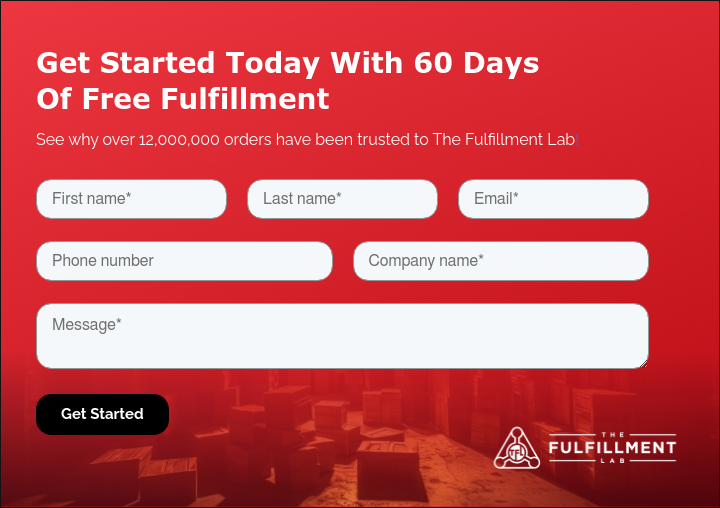Easily Overcome These 7 Challenges in Omnichannel Retail
When it comes to retail shopping, today’s consumers are accustomed to having everything at their fingertips. The advent of the omnichannel retail environment has made shopping more convenient and accessible to shoppers - while increasing revenue for business owners. That’s not to say omnichannel challenges don’t exist.
Creating the perfect omnichannel experience for customers is no easy feat. For starters, there’s technology integrations to sort through, inventory management issues to streamline, and customer experiences to build and mirror in both online and in-person stores.
It’s clear that omnichannel retail isn’t an easy undertaking; most businesses don’t master it on the first try. However, those that actively invest in omnichannel solutions, and stick with them, see notable benefits. These include:
- Order rate increases of 494%, when three or more channels are leveraged.
- A 9.5% year-over-year increase in annual revenue when strong omnichannel customer engagement is prioritized.
- 91% higher year-over-year customer retention rates compared to businesses that don’t adopt omnichannel measures.
So, how do companies overcome the challenges of shifting from a single-channel business to an omnichannel retail powerhouse? Keep reading to find out.
7 Challenges in Omnichannel Retail
Technology Integration
Integrations are the backbone of a successful omnichannel business model. To offer a seamless shopping experience, businesses often need to integrate platforms like e-commerce websites, Point-of-Sale (POS) systems, Customer Relationship Management (CRM) tools, and inventory management systems.This is so they can have access to all essential data in real-time.
However, achieving seamless technology integration is no walk in the park. Different platforms often use varied data formats, have unique functionalities, and may not naturally communicate with each other.
Integration challenges facing businesses commonly include:
- Data Inconsistency: Data discrepancies can exist when blending channels together and can lead to errors like incorrect product availability or pricing.
- System Compatibility: Not all systems are designed to work together which can lead to integration hiccups that need specialized APIs to resolve.
- Security Concerns. Cybersecurity must be considered when integrating platforms to create an omnichannel environment. A platform with weak security measures can put all other ones at risk.

Building the Customer Experience
Building the perfect customer experience is paramount in order to reap the benefits of omnichannel retail. You have to ensure customers always have a consistent and personalized journey when interacting with your brand whether they shop online, via mobile, or in-store.
However, crafting this unified experience is complex. Differing customer expectations for each channel, technological constraints, and the need for real-time data synchronization are just a few hurdles.
When addressing these issues businesses must prioritize:
- Consistency. For example, use uniform branding and messaging across all channels where customers can access your products.
- Personalization. Create tailored shopping experiences based on customer preferences and behavior. This could be as simple as making product recommendations at some point in the customer journey.
- Accessibility. If customers can’t access you from where they are, they’ll find someone else. Ensure your customers can engage with your brand at any time, from anywhere.
Inventory Management
Omnichannel retailing amplifies inventory management complexities compared to single or multi-channel models. In omnichannel, inventory must be synchronized across various platforms in real-time, from e-commerce sites to physical stores, ensuring availability and minimizing stock discrepancies.
Using inventory measures not tailored for omnichannel can lead to stockouts, overstock situations, and dissatisfied customers. These misalignments can erode trust and negatively impact sales and brand reputation.
Enter the Warehouse Management System (WMS). A robust WMS solution can streamline omnichannel inventory processes, ensuring accurate stock levels, efficient order fulfillment, and a seamless customer experience.
Data Management & Analysis
Omnichannel retailing generates data from a myriad of sources, from e-commerce transactions to in-store interactions. This data is invaluable, offering insights into customer behavior, preferences, and purchasing patterns. All of which can drive strategic decisions.
However, the sheer volume of data, coupled with its diversity, poses challenges. Collating data from disparate systems, ensuring its accuracy, and then analyzing it to extract meaningful insights can be daunting. Disjointed data can lead to misinformed strategies and missed opportunities.
To navigate this, invest in integrated analytics tools. Such platforms consolidate data, offer real-time analysis, and provide actionable insights, ensuring informed decision-making.
Supply Chain Complexities
Omnichannel retailing introduces intricate dynamics into the supply chain, demanding synchronization across various channels to meet customer expectations.
Key challenges include:
- Shipping. Coordinating timely deliveries from multiple warehouses or suppliers.
- Returns. Managing reverse logistics efficiently across channels.
- In-Store Pickups. Ensuring real-time inventory visibility and accuracy for immediate customer retrieval.
- Diverse Suppliers. Integrating and coordinating with multiple suppliers for consistent stock availability.
To address these complexities, consider adopting a centralized supply chain management system. Such a system provides a unified view, enabling businesses to anticipate challenges, make informed decisions, and ensure a seamless customer experience.
Earn Thousands More From Your Existing Customers
Discover how you can tap into more value from your customer base.
Get Your Guide
Meeting Customer Expectations
Omnichannel customers today expect more than ever before. They seek a seamless, personalized shopping experience, regardless of the channel they choose. This heightened expectation sets a high bar for retailers.
What do customers expect? The following statistics can explain.
- Almost 66% of consumers expect online purchases to arrive within two days of ordering.
- 73% of customers prefer shopping across multiple channels
- 59% of consumers will choose a seamless shopping experience when given the choice.
Meeting these expectations isn’t simple. Challenges businesses face include:
- Inconsistent Experiences. Customers want consistent service levels and customer care at every touch point, regardless of online or in-store experiences
- Real-Time Responses. Being able to address customer queries and concerns fast and with personalized care takes resources, training, and the right technology.
- Personalization. Creating tailored experiences based on individual customer preferences requires a deep knowledge of a customer and their interaction history.
- Product Availability. Keeping products in stock and readily accessible requires effective logistics and inventory management.
Internal Training
Not surprisingly, employees play a pivotal role in executing a seamless customer experience. From sales representatives to customer service agents, every team member must be equipped with the knowledge and skills to navigate the complexities of omnichannel operations.
This includes understanding the breadth of channels a business uses, managing in-store pickups, handling returns, and knowing how to interact and use the technology required to manage all channels.
However, providing this comprehensive training is challenging. It requires a well-structured program that encompasses both technological and soft skills. Regular updates and refresher courses are essential, ensuring that staff remain adept as the omnichannel landscape evolves.
How Businesses Can Overcome Omnichannel Retailing Challenges
Centralize Data From All Channels
In an omnichannel environment, having all customer and transaction data in a single location, - that’s accessible to all stakeholders - is paramount. As businesses expand their reach across multiple platforms, centralized data reduces redundancies and helps eliminate data inconsistencies.
Solutions to streamline retail data can include:
- CRM Systems. Platforms that consolidate customer interactions, preferences, and purchase histories.
- Warehouse Management Systems (WMS). Systems that centralize inventory data, ensuring consistent product availability information.
Centralizing data in an omnichannel retail environment not only streamlines operations but also enhances decision-making, reduces discrepancies, and ensures you can deliver a seamless and consistent customer experience even better.

Work with the Right Inventory Management System
Poor inventory management can be a significant pitfall for omnichannel retailers. Discrepancies in stock levels, overstock situations, or stockouts can erode customer trust, eventually leading to reduced sales and a tarnished brand reputation.
Conversely, effective inventory management can be a positive game-changer for omnichannel businesses. It ensures customers can get the products they want, minimizes storage costs, and provides a seamless shopping experience for customers across all channels.
To truly excel in inventory management, consider adopting a fulfillment software solution that can:
- Synchronize inventory information across all platforms and warehouses.
- Provide accurate forecast demand analytics to prevent stockouts and overstocks.
- Ensure timely and accurate order processing occurs for every channel
- Streamline reverse logistics for returned products.
Invest in Customer Journey Mapping
Customer journey mapping is the process of visualizing and understanding the path a customer takes from their first interaction with a brand to the final purchase or interaction.
It's a crucial tool for building personalized customer experiences. This is because it allows businesses to understand their customers' needs more intimately; it helps them to anticipate their customer needs and preferences more acutely.
Personalize Experiences Through Fulfillment Marketing
Fulfillment marketing is the strategy of enhancing the post-purchase experience by tailoring the delivery and packaging process to individual customers, turning the act of product fulfillment into a marketing opportunity.
By adopting fulfillment marketing, businesses can create deeply personalized experiences for their customers. This goes beyond just delivering a product; it's about curating an unboxing experience that resonates with the customer's preferences, tastes, and previous interactions with the brand.
The benefits of such personalized experiences are huge. Personalized packaging can evoke strong emotional connections, leading to increased brand loyalty. It also differentiates a brand in a crowded market, making customers feel valued and understood.
Moreover, a memorable unboxing experience can drive word-of-mouth marketing, as delighted customers share their unique experiences on social media and with friends.
|
Fulfillment marketing can take your omnichannel strategy to the next level? Find out how in our blog: |
Focus on Internal Education
Internal training is the linchpin for businesses aiming to establish a robust omnichannel environment. Equipping team members with the right knowledge and skills ensures that they can navigate the complexities of multiple channels seamlessly and be able to provide consistent and high-quality service to customers.
To make omnichannel retail more cohesive, businesses should prioritize educating their staff in the following areas:
- All Retail Channels. Team members need to know what channels their customers can access products from and know how to interact with them and answer customer questions relevant to each channel.
- Technology. Regular tech training ensures team members are adept at using the integrated systems like CRM, POS, and WMS.
- Customer Service Excellence. Train staff on how to provide consistent service across all touchpoints, be it online, in-store, or via mobile. Ensure training materials are consistent as well.
Overcome Omnichannel Challenges With the Fulfillment Lab
While shifting to an omnichannel retail environment is worth the effort, it isn’t always easy. It’s important to partner with providers that know how to address omnichannel challenges and strengthen your business.
At The Fulfillment Lab, we can do just that. Our WMS solution is designed to help ecommerce retailers manage their warehousing operations and create inventory management processes that can handle the complexities of the omnichannel environment.
To learn more about our services, contact our team.


